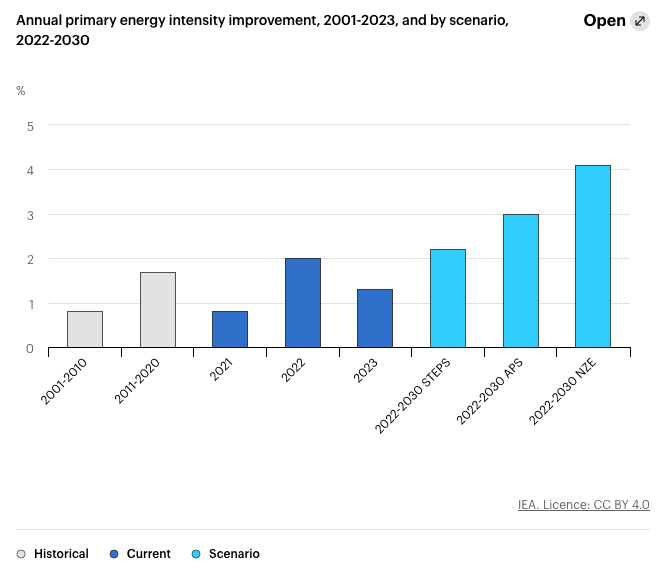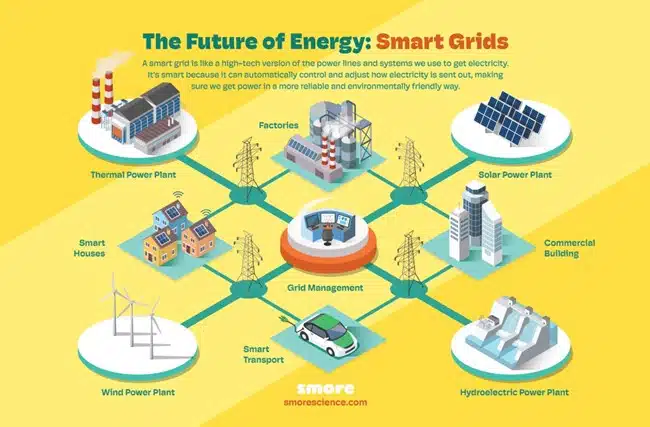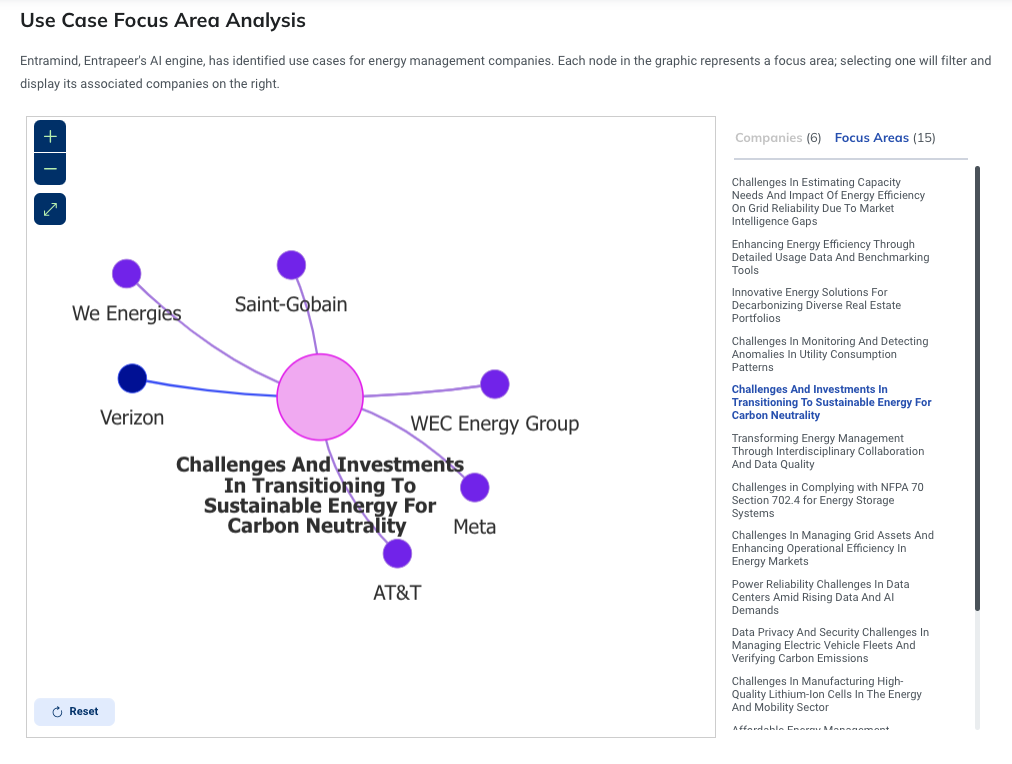
The Future of Renewable Energy Management and Strategies
Energy strategies and management are crucial in addressing the growing need for efficient and sustainable energy use across various sectors. The primary focus of these strategies is optimizing energy consumption, reducing waste, and enhancing operational efficiency through advanced technologies and innovative practices.
As the world shifts towards renewable energy sources, the future of renewable energy management and strategies becomes a vital aspect of achieving global sustainability goals. This article delves into the evolving landscape of renewable energy management, highlighting the role of advanced technologies and innovative practices in shaping a sustainable future.
Current Trends in Renewable Energy Management
Renewable energy management is experiencing rapid growth, driven by increasing environmental awareness, technological advancements, and supportive regulatory frameworks. Governments and organizations worldwide are investing heavily in renewable energy projects, aiming to reduce carbon emissions and achieve sustainability goals.
Several key data points illustrate the current state and potential of the energy management market:

- Energy Efficiency Improvements: Energy efficiency has been improving at an annual rate of around 2%, but achieving the 2030 targets will require accelerating these gains to approximately 3.4% per year.
- Renewable Energy Integration: In 2020, renewable energy’s share of global consumption was 19.1%, with significant contributions from solar and wind energy.
- Regulatory and Policy Support: Developing countries face challenges in formulating renewable energy policies, with only half of the least developed countries having enacted specific laws for renewable energy.
- Investment Opportunities: India’s energy transition towards net zero by 2070 presents a $500 billion investment opportunity in the green energy value chain, including renewables and electric vehicles.
However, despite these developments, several challenges remain. The intermittent nature of renewable energy sources like solar and wind poses significant issues for grid stability and energy reliability.
Additionally, the high initial costs of renewable energy infrastructure and the need for continuous technological innovation present barriers to widespread adoption. Addressing these challenges requires innovative energy management strategies that leverage cutting-edge technologies.
The Growing Importance of Renewable Energy Management Strategies
Renewable energy management and strategies are essential for addressing the pressing need for sustainable energy use. The increasing adoption of renewable energy sources, such as solar, wind, and hydroelectric power, necessitates efficient energy management strategies to optimize their use and integration into existing energy systems.
The primary focus of these strategies is optimizing energy consumption, reducing waste, and enhancing operational efficiency through advanced technologies and innovative practices. These efforts are crucial for cost savings and achieving global environmental goals.
Key components of effective energy management strategies include:
- Demand Side Management (DSM): Encouraging consumers to modify their energy usage patterns, often through financial incentives or behavioral changes, to reduce overall demand.
- Energy Efficiency Programs: Implementing energy-efficient technologies and practices, such as using ENERGY STAR-certified appliances and lighting.
- Building Energy Management Systems (BEMS): Utilizing systems that monitor and control energy use in commercial buildings, providing real-time data and automation to enhance efficiency.
- Renewable Energy Integration: Incorporating renewable energy sources like solar, wind, and hydroelectric power into the energy mix to reduce reliance on fossil fuels.
- Energy Audits: Conducting comprehensive evaluations of energy usage to identify inefficiencies and recommend improvements.
These strategies are vital for businesses aiming to improve energy efficiency, cut costs, and meet sustainability targets.
Advanced Technologies Revolutionizing Energy Management Practices
The future of renewable energy management is inextricably linked to the advancement of technologies. Several key technologies are revolutionizing energy management practices, making them more efficient, reliable, and sustainable.
Artificial Intelligence (AI) and Machine Learning (ML)
AI and ML are transforming renewable energy management by providing predictive analytics and autonomous decision-making capabilities. These technologies can analyze vast amounts of data to predict energy consumption patterns, detect anomalies, and optimize energy use. For example, AI algorithms can forecast peak demand periods and adjust energy distribution accordingly, reducing the risk of outages and improving grid stability.
Internet of Things (IoT)
The IoT enables real-time data collection and analysis through connected devices such as smart meters, sensors, thermostats, and lighting. These devices provide valuable insights into energy consumption patterns, allowing for more precise energy management strategies. IoT technology can also facilitate automated control of energy-consuming devices, optimizing their use based on real-time conditions and user preferences.
Big Data Analytics
Big data analytics plays a crucial role in processing and analyzing the enormous amounts of data generated by renewable energy systems and IoT devices. By leveraging big data, organizations can gain deeper insights into their energy use, identify inefficiencies, and implement targeted improvements. This data-driven approach ensures that energy management strategies are based on accurate, real-time information.

Smart Grid Technology
Smart grid technology is modernizing traditional energy systems by incorporating digital intelligence. Smart grids enhance the reliability and efficiency of energy distribution networks through advanced metering infrastructure, demand response systems, and real-time monitoring and control. These features enable more effective integration of renewable energy sources and improve overall grid stability.
Energy Management Software (EMS)
EMS offers tools for monitoring, controlling, and optimizing the delivery and use of electricity. Custom EMS development aligns precisely with an energy provider’s specific operational requirements and strategic goals. These systems provide energy analytics, enabling users to monitor utility consumption trends, identify cost-saving opportunities, and track key performance indicators.
Problems with These Existing Energy Management Solutions
Traditional energy management strategies often fall short in effectively managing renewable energy sources. Conventional grid systems are not designed to handle the variability and decentralization inherent in renewable energy. This results in inefficiencies, energy wastage, and increased operational costs. Moreover, the lack of real-time data and predictive analytics in traditional systems hampers the ability to make informed decisions and optimize energy use.
Energy management systems (EMS) and building energy management systems (BEMS) provide some level of automation and monitoring but often lack the integration of advanced technologies necessary to fully realize the potential of renewable energy. Furthermore, many existing solutions are not scalable or adaptable to the rapidly changing energy landscape, making it difficult for organizations to stay competitive and meet their sustainability targets.
Entrapeer’s Role in Streamlining Innovation Processes
At entrapeer, we understand the complexities of modern energy management and the need for innovative solutions. Our enterprise innovation platform is designed to help companies streamline their innovation processes and stay ahead of the curve. By leveraging our AI-powered competitive intelligence software, businesses can gain valuable insights into market trends, identify new opportunities, and implement an effective energy management strategy.
Our platform utilizes advanced AI algorithms to analyze market data, predict trends, and provide actionable insights. This enables companies to make informed decisions and implement an energy management strategy that are both efficient and sustainable. Whether it’s optimizing energy consumption, integrating renewable energy sources, or enhancing operational efficiency, our platform provides the tools and insights needed to succeed.

Our platform provides several benefits for companies looking to enhance their energy management strategy:
- Use-Case Driven Intelligence: Reveals practical use cases offering actionable insights for diverse innovation goals.
- Verified Results for Decision-Making: Delivers verified outcomes from past projects, ensuring evidence-based strategic decisions.
- Direct Startup Connection: Facilitates immediate engagement with innovators, enabling organizations to connect with the right startup contacts effortlessly.
- Customized Market Insight: Provides tailored market insights and trend reports catering to specific research and innovation interests.
- Global Reach without Geographic Limits: Presents a truly global perspective, transcending geographical limitations.
Optimize Your Energy Management Strategy With Entrapeer
The future of renewable energy management and strategies is bright, driven by technological advancements and a growing awareness of sustainability. As the energy landscape continues to evolve, adopting advanced technologies like AI, IoT, big data analytics, and smart grids will be crucial for optimizing energy use, reducing waste, and enhancing operational efficiency.
Entrapeer is here to help you navigate this dynamic landscape. Our AI-powered competitive intelligence software can provide the insights and connections needed to stay ahead of the curve. Request a demo or sign up for our platform today to see how entrapeer can transform your energy management strategy and drive sustainable growth.
By embracing innovative energy management strategies and leveraging advanced technologies, we can achieve a more sustainable and resilient energy future.
Sources
- https://www.businesswire.com/news/home/20240613502443/en/
- https://www.nrel.gov/solar/market-research-analysis/index.html
- https://www.mdpi.com/1996-1073/16/16/6014
FAQs
What is renewable energy management?
Renewable energy management involves optimizing the use of renewable energy sources such as solar, wind, and hydroelectric power. This process includes monitoring, controlling, and conserving energy to improve efficiency, reduce costs, and minimize environmental impact.
Why is energy management important?
Energy management is crucial for reducing waste, enhancing operational efficiency, and lowering costs. It also plays a significant role in achieving global environmental goals by minimizing carbon emissions and promoting sustainable energy practices.
How do advanced technologies improve energy management strategies?
Advanced technologies like AI, IoT, big data analytics, and smart grids enhance energy management by providing real-time data, predictive insights, and automated controls. These technologies help optimize energy consumption, improve grid reliability, and support the integration of renewable energy sources.
What role does AI play in energy management?
AI is used in energy management to predict consumption trends, detect anomalies, and optimize energy use through autonomous decision-making. AI algorithms analyze large datasets to provide actionable insights that drive efficiency and sustainability.
Join the entrapeer community today and stay up-to-date with current trends.
Sources
- https://www.telecomtv.com/content/digital-platforms-services/e-targets-customer-service-gains-with-gpt-47150/
- https://telecomreseller.com/2023/03/29/transforming-customer-support-with-generative-ai/
- https://www.itp.net/emergent-tech/chatgpt-and-other-ai-tools-set-to-reshape-telecom-industry

